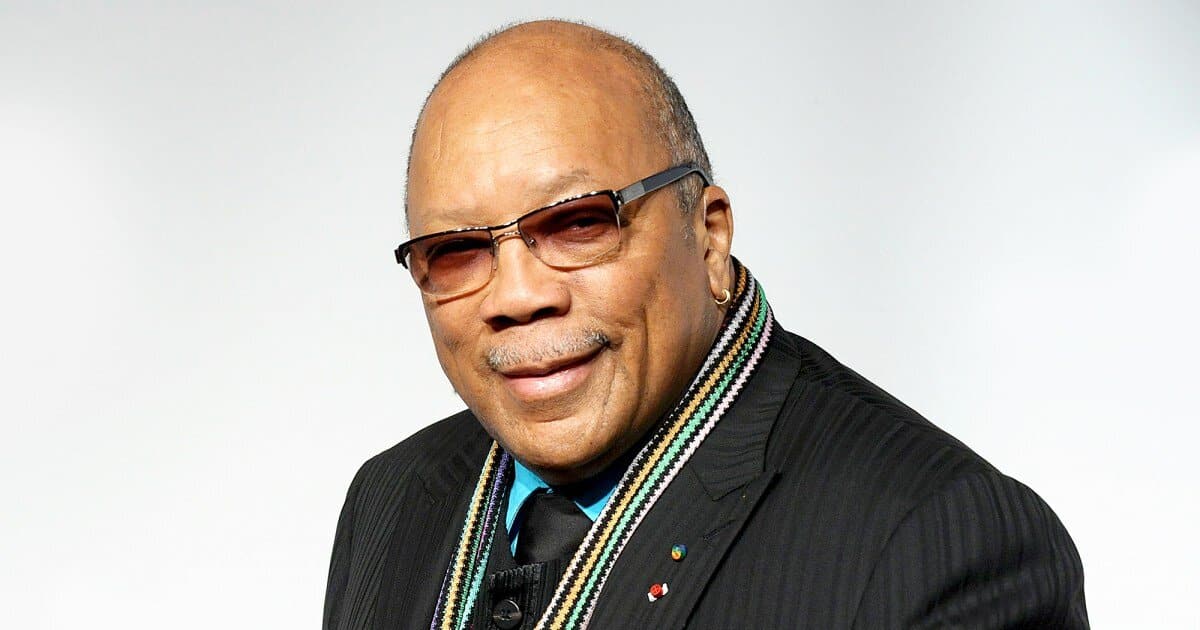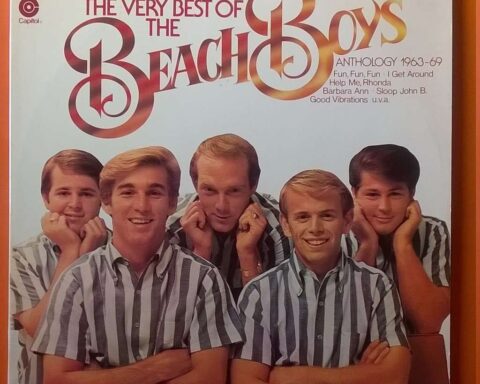Michael Jackson’s legendary producer, trumpeter and groove arranger-composer Quincy Jones passed away on Sunday, November 3, at the age of 91. A true music legend with no fewer than 70 Grammy Award nominations (including 27 titles), Quincy Jones leaves a rich heritage of sound and brass at the crossroads of musical genres.
“Just you and nothing else… You and nothing else”.
It was on June 27, 2019 that Quincy Jones‘ most personal and famous hit, Ai No Corrida (1981), resounded at theAccor Arena.
An all-brass track performed by a symphony orchestra in the presence of the artist himself, who was determined to celebrate 70 years of a career marked by encounters, discoveries and hits that have left an indelible mark on several generations.
The array of prestigious guests present that evening was a reflection of his life, whose address book was an authentic Who’s Who of the American music industry over seven decades: Ray Charles, Lionel Hampton, Aretha Franklin, Frank Sinatra, Sarah Vaughan, Miles Davis, Barbra Streisand, Michael Jackson…
A life lived at a hundred miles an hour, which came to an end on November 3, 2024 in Los Angeles. He was 91 years old.
Gangster seed
Yet nothing predestined Quincy Delight Jones to become “Mr. Q”, a respected authority figure capable of channeling the egos of pop, rock and jazz superstars such as Michael Jackson, Bob Dylan and Miles Davis.
Born in 1933 in Chicago, the capital of American crime in the final days of Prohibition, he had every reason to end up badly. His violent father was directly linked to the Jones Boys gang, a rival gang to the godfather of godfathers at the time, a certain Al Capone, who had been convicted of tax fraud two years earlier.
Following a serious schizophrenic attack, his mother was eventually committed to a psychiatric hospital. When he was eleven, his father filed for divorce and decided to escape the mob, fleeing with him to Bremerton, Washington, before migrating to Seattle.
He immediately made the unexpected encounter that would change his life forever and save him from the temptation of a career in the Mafia: that with a piano. When he heard the first notes in a village hall, itclicked: “When I touched it, every cell in my body told me this is what I’m going to do for the rest of my life, ” Quincy Jones told The Hollywood Reporter.
A pioneer in the music industry
From that moment on, Quincy Jones was a self-taught musician, starting with the piano. A teacher noticed his interest and gave him music theory lessons in exchange for babysitting his children. Next came the trombone and then the trumpet, which soon became his instrument of choice. In this field, he learned a sense of rhythm from his “teachers” Clark Terry, approached with a certain amount of nerve during the high school marching band, and Duke Ellington. Quincy was also part of a semi-professional orchestra led by Bumps Blackwell.
Scouring the clubs around him, he played alongside Ray Charles, two years his junior, with whom he shared his years of hardship and who was to become a lifelong friend. He’ll never forget those days when food ran short, forcing him to eat grilled rat, or the cold of his apartment numbed his limbs.
It was during this period thathe crossed paths with two music legends whom he would later produce: Aretha Franklin and Stevie Wonder. He also joined Lionel Hampton’s orchestra.
When he came of age, he won a scholarship to the Schillinger House in Boston, Massachusetts, which became the prestigious Berklee School of Music in 1958.
A year later, he was in New York, working with Count Basie, Tommy Dorsey and Dinah Washington.
In 1957, he landed a job with the Barclays label during a trip to Paris. With in-house training, for two years he supervised recording sessions for artists such as Jacques Brel and Charles Aznavour. He made several visits to pianist, conductor, composer and teacher Nadia Boulanger to perfect his string writing, harmony and analysis of classical works, before returning to the United States.
Impressed by his work in Paris and his background in jazz, the American label Mercury Records made him its vice-president. In 1961, he became the first African-American to hold an executive position in the music industry. That same year, he scored his first major pop success, producing Leslie Gore’s It’s My Party.
Three years later, he concentrated on arranging and conducting, forging close ties with Dizzy Gillespie and especially Frank Sinatra. In 1969, during his moon landing, astronaut Buzz Aldrin listened to Fly me to the moon, the crooner’s signature hit.
Producer of the best-selling album of all time
In 1978, Quincy Jones met Michael Jackson after filming The Wiz, a musical comedy adaptation of The Wizard of Oz. The latter wanted to break away from the Motown label for his fifth solo album.
“Mr Q” became a household name with the man who soon became the King of Pop through his solo career. He produced no less than three of the moonwalker ‘s best albums: Off The Wall ( 1979), Bad ( 1987) and, above all, Thriller ( 1982).
This last album, containing the eponymous hit with its frenzied rhythm and mythical horrific video, became the best-selling album in history, selling 70 million copies. The legendary opus earned him the title of Producer of the Year 1981, as well as Album of the Year!
Another record is that ofone of the best-selling singles of all time (over 20 million copies) with We are the world, produced by USA for Africa, a charity group involving almost all the big names in the American music industry in the eighties to fight famine in Ethiopia.
In 1962, Quincy Jones had released an album, Big Band Bossa Nova, with the famous title “Soul Bossa Nova”. In 1981, his evolution transpired in an album with more disco and funk sounds: The Dude (1981). It includes his biggest personal hit, Ai No Corrida, and the song chosen by the Man in Black, Thierry Ardisson, to mark the end of his Salut les Terriens show, Razzamatazz.
Quincy Jones is also the creator of numerous songs: in addition to Fly me to the moon, his hits include Billie Jean, Beat it and You don’t own me.
He was also called upon more than 30 times bythe cinema: Quincy Jones wrote the soundtracks for Steven Spielberg’s The Color Purple (1986), Norman Jewison’s In the Heat of the Night (1967), The Wiz (1978) and Sidney Lumet’s The Pawnbroker (1964).
With 27 Grammy Awards over the course of his career, Quincy Jones is hot on the heels of conductor Georg Solti (31 wins) and singer Beyoncé (32 wins).
Read also > Charles Aznavour, eternal glory after a rocky start
Featured Photo: © Jason LaVeris/FilmMagic














